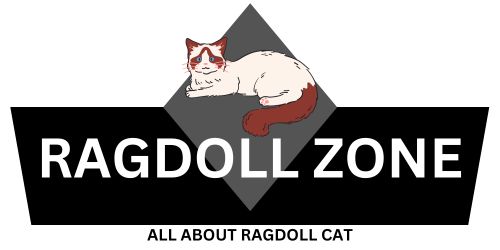Is Wet Food Better For Cats Than Dry?
The subject of whether is wet food better for cats than dry food is preferable has been a controversy for years leaving cat owners in confusion.
Each of them has its pros and cons, so the decision to choose depends on the cat and its needs, and preferences.
In this blog post, I’ll enlighten you on the advantages as well as the disadvantages of each for you to make a better decision.
Table of Contents
Wet Food Hydration Option
In case one is looking for an option that will hydrate their body, then there is a variety to choose from.
1. Hydration Benefits: Wet food is certainly popular mostly because it is more moist than dry food and has many other features that make it beneficial for cats.
Wet food is also highly recommended for cats because of their vulnerability to dehydration. This is especially applicable to the elderly cat or one with a history of urinary system conditions.
2. Taste Appeal: Some of the cats prefer wet food because of the available taste and texture as compared to dry foods.
The smell can also be attractive making feeding your cat more enjoyable for the animal.
3. Nutritional Content: Wet food also has the benefit of having the potential to contain more protein and fats which are good for the cat’s health.
As most products do, the label contains sugar addition and other fillers and it is important to examine this.
Dry Food: Convenience and Dental Health
1. Convenience: To conclude, dry food is more comfortable. It doesn’t call for refrigeration has a longer shelf life and could be left as it is for self-feeding.
2. Dental Benefits: The effects of dry kibble include that it allows your cat to chew getting rid of most of the plaque. This can applied in efforts to enhance oral health.
3. Complete Nutrition: People have formulated dry foods in such a way that they contain all the nutrients that are required by the body. The customer should use good brands so that the cat is provided with the essential nutrients it requires.
Finding the Right Balance
1. Combination Diet: Veterinary doctors advise that the cat should be fed both wet and dry food in their diets or meals. This can be an advantage because you get both the hydration aspect and taste appeal factor and the health benefits of consumption as regards your teeth.
2. Consider Your Cat’s Needs: Such factors as; age, health conditions, and or preferences should be taken into consideration in making the decision. For instance, age-vulnerable cats or cats that suffer from urinary problems might need wet food more.
3. Consult Your Vet: If there is uncertainty about any food, one should ask the veterinarian for advice. Thereby, they can bring prescriptions to your cat according to his/her specifications.
Addressing Common Concerns
While we’ve covered the basics of wet and dry cat food, let’s address some common concerns and questions:
1. Cost: Wet food is relatively costly as compared to dry food because the former contains high moisture content.
Nevertheless, considering the aspects of potential health benefits as well as improved taste, the above expense might be compensated by the client if he or she takes care of the cat.
2. Weight Management: Dry foods are either lower in calorie content and fat and so are more suitable for overweight cats.
But there are critical factors that should be taken into consideration while feeding it the wet as well as the dry food, and this is the portion size.
3. Dental Health: This explains why brands of dry foods have their labels saying certain recommended benefits for your pet’s teeth, the important thing to remember is that even with dry foods your pet must be brushing its teeth and visiting the vet frequently for dental checkups.
There are wet foods that are formulated for cleaning the teeth of the animal.
Special Dietary Needs
1. Kidney Disease: Kidneys inherently deteriorate the cats’ ability to regulate water; therefore, moist foods are recommended for cats with kidney disease since they contain higher levels of water than dry foods.
2. Urinary Issues: As in the case of kidney disease, adequate water intake should be encouraged in cats with urinary problems. Wet food in particular may be useful for regulating one’s urine.
3. Senior Cats: According to their age, the taste and the appetite of the cats may vary in some ways or others. The flavors and odor of wet food could be richer and your older cat could prefer it to dry food more.
Transitioning Your Cat
When changing the cat’s food remember to do it slowly so that it does not upset the cat’s stomach. Replace the food gradually over a week or two, by adding small amounts of the new food to the old food.
Conclusion
This particular issue of is wet food is better for cats than dry food is not easy to discuss because there is no clear-cut answer.
Thus, the only reasonable and effective strategy is to take into account all the peculiarities of your cat’s personality.
It is quite possible, therefore, that the optimum solution will involve having some elements of both of the above as a way of correcting for their shortcomings. Remember to feed your dog the best food ever and do talk to your vet for more advice.
Is there anything you would like to know more/less about cats’ diets or diseases?

Hi there every one, here every person is sharing these
kinds of knowledge, thus it’s pleasant to read this website, and I used to pay a quick visit this web
site everyday.